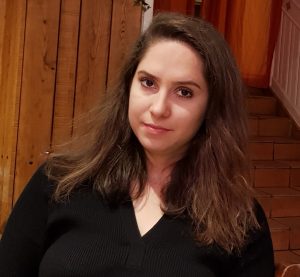The Need for an Independent Women's Movement

Some women activists believe that Afghan women should start independent movements to advocate and defend their rights, especially after the start of peace talks, which has raised some concerns about their rights being ignored. These activists believe that there is the capacity to create such movements among the country’s educated women and girls.
In an interview with CSHRN, Niloufar Langar said that It should not be forgotten that a large number of Afghan women have gone to school and university in the last two decades, worked and demonstrated their potential in various fields. Afghan women, especially the educated ones, have the capacity for such movements and they only need motivation to start.
CSHRN: Given the Taliban’s history, especially with regards to women, do you think that the negotiations will have a positive outcome?
Langar: The Afghan government, the negotiating team and the country’s international allies, who also have a supervisory role to play, must recognize that the Taliban is, above all, a religious extremist group, specifically with issues such as human rights and women’s rights. They do not believe in freedom of expression and democratic values. Therefore, it is naïve to believe that they will join the government while respecting democratic values. The government must defend democratic values, including freedom of expression, press, and women’s rights and discuss them with details. Otherwise, the achievements of the past two decades will be sacrificed and society will relapse to the dark era of the Taliban.
CSHRN: Can the government’s negotiating team change the Taliban’s view of women?
Langar: Taliban’s centuries-old petrified views will never change. Therefore, the Afghan government should speak from a position of power while making the sincere efforts to reach a peace agreement. Democratic values and women’s rights should be maintained.
CSHRN: Do you think that the government negotiating team have the ability to negotiate?
Langar: We have some confidence in the members of the negotiating team. However, the Afghan government, in particular, the international supporters need to have a supervisory role.
CSHRN: Do you think that the presence of female representatives in these talks could affect the Taliban’s view of them?
Langar: The presence of women must be active and strong. The female members of the negotiating team are in dire need of support. They must be competent enough to discuss and create a dialogue, and their views must be considered as the main focus of the discussion at the negotiating table. The Afghan government, human rights and women’s advocacy organizations, and international pro-Afghan organizations must support women in the peace process so that they can be empowered. Otherwise, the symbolic representation of women, which is common in Afghan politics, will not yield any results.
CSHRN: How can female citizens support the female members of the negotiating team?
Langar: Women can use a variety of methods to support the negotiating team, including narrating the incidents and violence against Afghan women and protesting. Women can send their messages through marching, writing, art, and debates. Afghan women should remind the Taliban that they still remember the violence, inequality, and oppression that the Taliban inflicted on them and that the Taliban are not forgiven by the people.
CSHRN: How effective can women’s movements be?
Langar: Coherent movements against the Taliban, if properly communicated, can show the world that Afghan women can defend their rights. Otherwise, the Taliban once again violate their rights and freedoms and deprive them of their most basic rights.
CSHRN: What is your prediction of women situation after government peace process?
Langar: If the government and the Taliban only agree on political and military issues and ignore democratic values and women’s rights, restrictions will be imposed on women. Progress in women’s political participation is unimaginable and their strong presence in society, culture, economy, sports and other spheres will be under great pressure. However, if democratic values are discussed in detail and agreed upon, women’s situation could be promising.
CSHRN: What is your assessment of the peace talks?
Langar: Even if there is a glimmer of hope in political and military debates, I am utterly disappointed in preserving issues such as democratic values, including freedom of expression, human rights and women’s rights and freedoms. From the beginning, issues such as women’s rights and freedoms and other democratic values have been merely discussed generally and marginally.
Ms. Langar concluded that the fact that women’s rights are not discussed in details in the peace talks is disappointing. Women’s achievements, their rights to education and work, and their involvement in social, political, and cultural activities have not been raised yet.